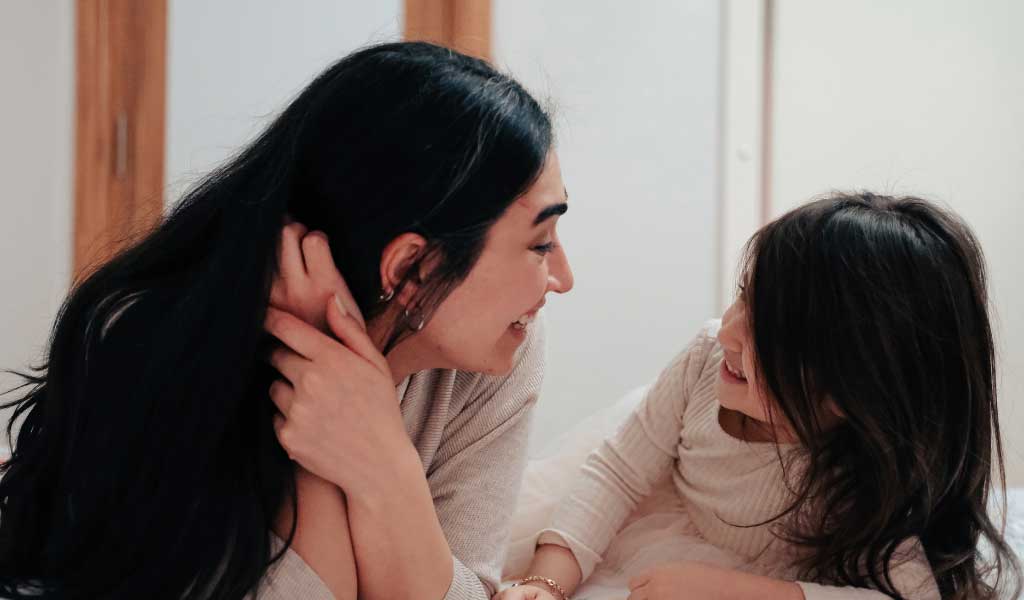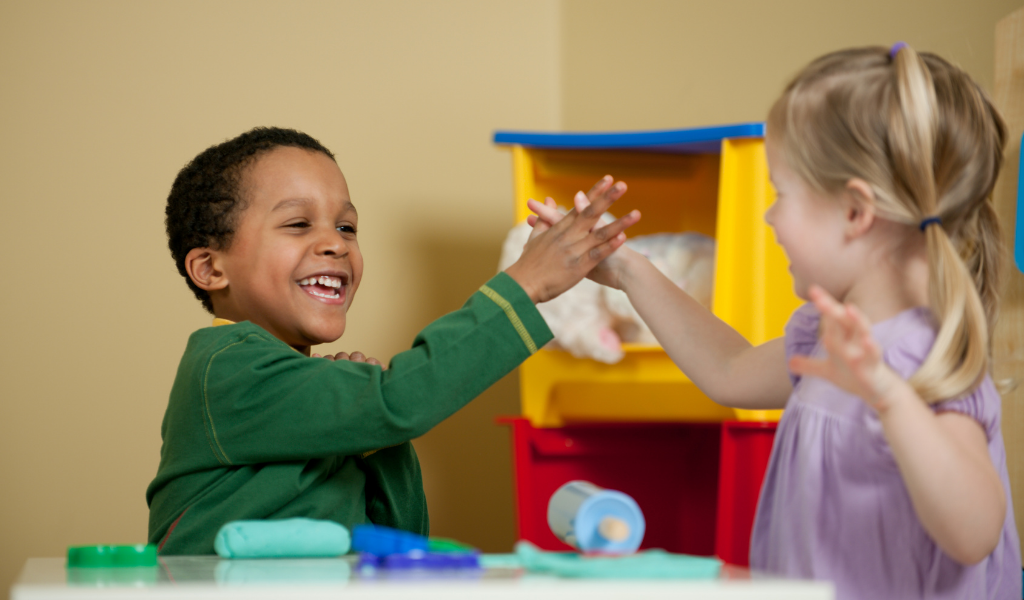We all know how tough it is when a child is struggling to make friends. It can disrupt their educational experience and affect their confidence. So how can we support young children’s friendship skills? Emotional expert, Mina Minozzi shares four practical ways:
One of the main reasons a child struggles to make friends can be because of emotional dysregulation. When we can communicate our emotions and how they feel it helps us to regulate them. Naming emotions and what they might look like are key social skills we can support in children.
When you see a child showing a particular emotion, you can offer a label and reason for it. For example, “You have a big smile on your face. Are you happy to see me?’ or ‘You’re crying. Are you frustrated because you can’t play with the blocks?’

When labelling emotions, saying what you see is key to nurturing children’s friendships skills. For example, “I see you are holding a block are you offering it to your friend?” or “I see you have your hand to your mouth, are you thinking about which block you would like?”
We want to keep it very neutral, to stay curious after we have made our observations. It can be tempting to be assumptive of the child’s intentions. However, remember we want to give the opportunity for the children to build friendship skills by communicating what they want or are trying to do.
To practice and prepare for social situations that the children might experience, role play a great tool here. You could use toy animals and set up the scene. For example, “Giraffe wants to play with sheep, how would giraffe do this?” Or “sheep is upset that goat isn’t sharing, what could sheep do?”
You could role-play by having the children dress up as characters, each assigned with a different emotion. Then explore the ways that these characters would act. This type of role-play opens the opportunity to practise social skills in a fun way. It can also be a useful reference when the scenario occurs in real life.

The more the children know about each other, the more confident they can feel and empathise with others’ feelings. A fun idea could be to have a ‘Get to know me day’. This is where you would have a display that showed each child’s likes and dislikes. You could even have photos of how each child showed the emotions of happiness, sadness, anger, and fear.
Then you could ask the group about each child. For example, “Does Theo like playing with blocks?” or “How does Laura show that she’s happy?”. In knowing each other’s likes and dislikes, and being familiar with their emotional expressions, important social cues that children can use for their friendships are provided.
Young children’s friendships can be nurtured when their big feelings are understood and expressed. We can help them navigate their emotions through role play and our neutral observations of their behaviour. Ultimately, encouraging children’s confidence and developing their social skills.

Mina Minozzi is a child emotion specialist, with an MSc in Child Development from the Institute of Education and over 12 years’ experience working with children. She has been featured in CNBC make it and The Kids Network. Mina is also an international children’s author, having written four books on emotional intelligence. Mina’s mission is to make emotional intelligence part of the curriculum so that children are enabled to be self-aware and know the power they hold within.